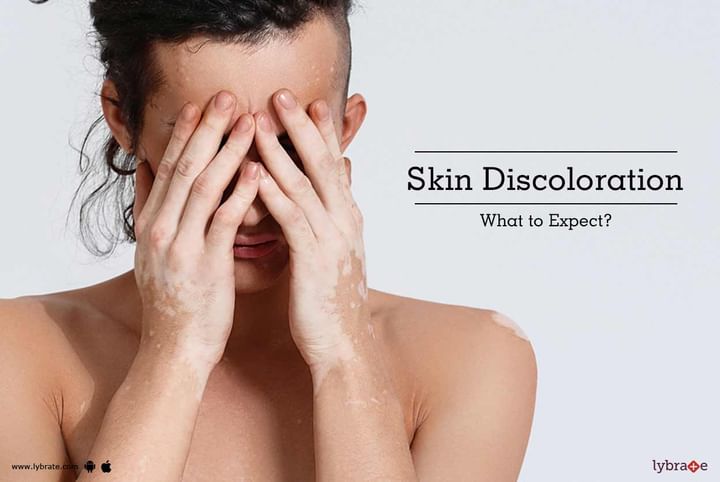Skin Discoloration - What to Expect?
Injury, lingering infirmity deprives the body of the nutrients which are necessary for healthy skin, inflammatory diseases, several hours of heat and sun exposure or contact with sun can all cause discolored skin. If Melanin (whichever of the diverse black, dark brown, auburn, or yellow color of living things as skin color or hair color and eye color) is produced in abundance due to some physiological imbalances, it can result in that area of the body to get darker than the rest.
On the other hand, if there is a decrease in Melanin production then you could get lighter skin patches known as Vitiligo . While most pigmentation anomaly entails patches of skin, others affect the entire body. Depending on the two different conditions the terms hyper-pigmentation (excessive) and hypo-pigmentation (moderate) have been coined. Most women face problems of hyper-pigmentation during pregnancy and after child birth due to over secretion of hormones. 'Mask of pregnancy' is a new age term given to this condition in pregnant women. Most cases are reversible; some might last an entire lifetime, if medical attention is not available at the right time. Hypo-pigmentation should not be mistaken with Albinism, which is a genetic condition.
Albinism is characterized by almost no secretion of melanin. Staying out for very long hours in the sun may cause sunburns, when the skin turns brown or red according to one’s color, once this condition heals (after most of the burnt or dead skin peels off), the tanned portions may remain. Fungal contamination such as ringworm may set off stained skin patches. A compromised immune system can result in discolored skin as well. A frequent allergy that causes skin to get discolored is eczema. Birthmarks are also a kind of discolored skin.
It is wise for you to visit a dermatologist when you start noticing a sudden change in your skin color for no apparent reason, a patch that does not get relieved by OTC medicines or experience a burning or itching sensation on the skin etc. A dermatologist after evaluating your skin and putting you through a couple of basic questions would recommend ointments and oral medicines. He/she may also ask for blood tests to get done. Treatment would solely depend on the primary cause.
Treatment and prevention
- In general, most skin discoloration issues can be dealt with the help of creams containing glycolic acid, hydroquinone, lactic acid and retinoid. These are easily available in the market.
- But care must be taken to not expose yourself to the harmful UV rays of the sun. A sunscreen with the correct SPF count is a must before you venture outdoors. Remember that one should not skip the sunscreen even during the winters.
- Laser therapy and chemical peels will only be considered once topical treatment fails.
- Your diet should include plenty of vegetables and fruits; consume plenty of fluids to flush out toxins. Regular exercising promotes better blood circulation that helps prevent such issues concerning discoloration.
Supplements of Vitamins A,C and E are also prescribed in combination with Vitamin B to improve the overall skin condition. Simple home remedies including lime juice, milk, curd and honey applied on the affected spots with homemade scrubs can help remedy the issue. If you wish to discuss about any specific problem, you can consult a Dermatologist.



+1.svg)
